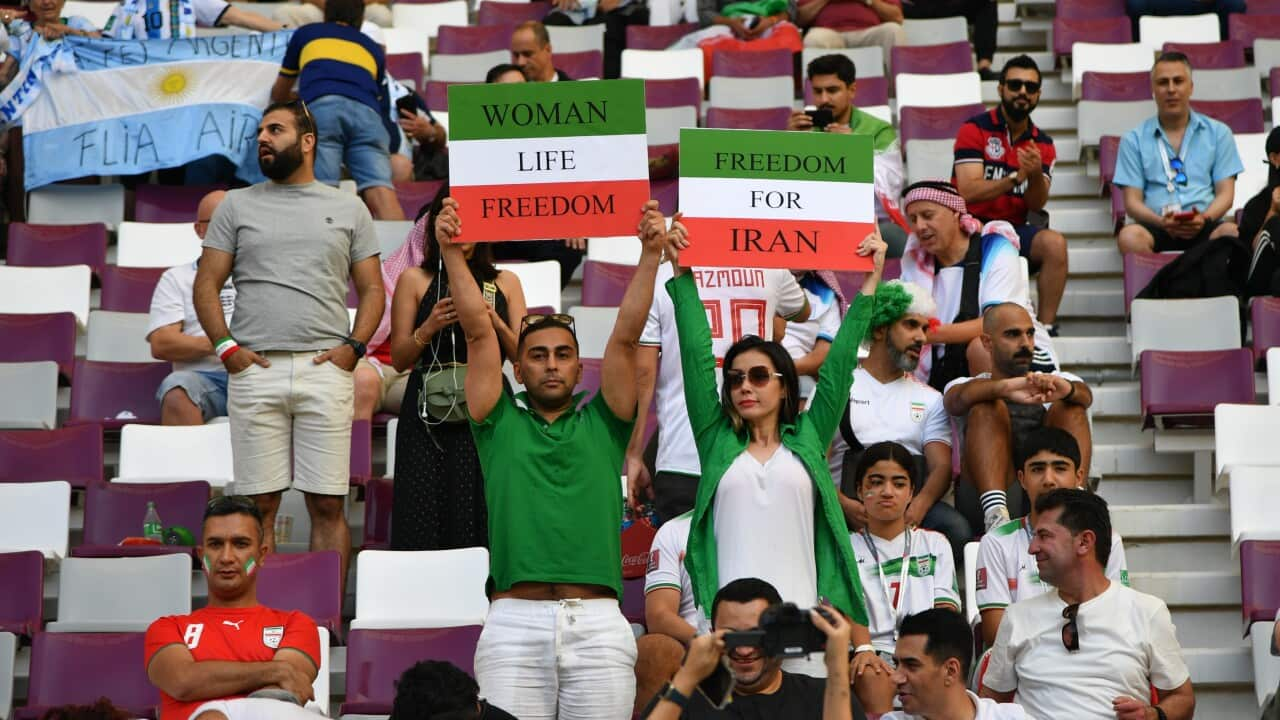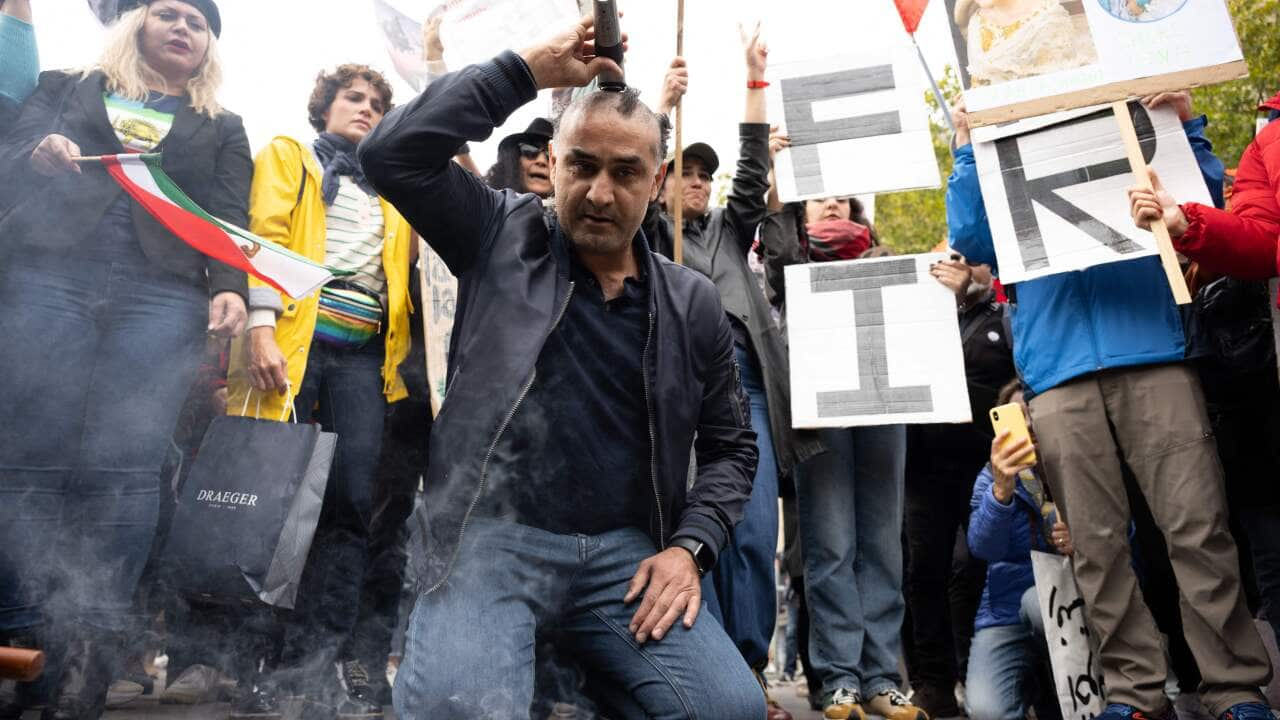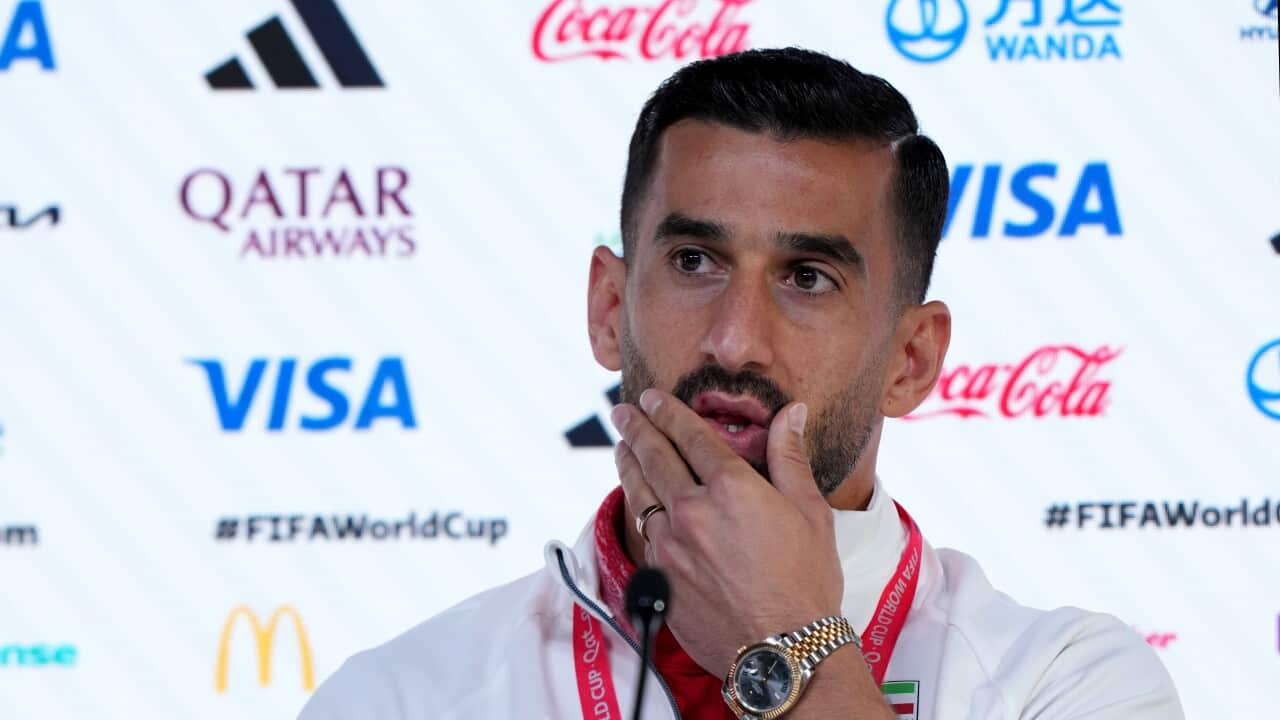Key Points
- Iran's participation in the 2022 FIFA World Cup has been mired in controversy due to protests and political unrest.
- Critics say Iran should not be participating in the tournament, referring to players as the "Islamic Republic" team.
- Players appeared to show support for protesters by not singing the national anthem ahead of their first game.
Representing your country in an international sporting tournament is usually a source of pride, excitement, and inspiration for both athletes and fans.
For Iranians, the has been mired in controversy due to the ongoing uprising and discontent over their home country's theocratic regime.
On Monday night, as the national team lined up for its first match of the tournament again England, supporters expressed mixed emotions. Some made no secret of their support for protesters, waving signs with messages such as "Women, Life, Freedom".
One Iranian-English fan told Reuters the game had offered an escape from the political unrest.
"For some time, we try to forget the issues that are ongoing in Iran. It was a happy occasion for us to watch the two play together," he said.
"And I think for 90-100 minutes, with the spare time, we did not think about what is really happening in reality in Iran.
"I think all people around the world want what's best for humanity and Iran is part of that, so hopefully things will get better."
Others are frustrated with the team, and view their participation as implicit support for the government.
Before travelling to Doha, the team met with Iranian President Ebrahim Raisi, and photos of the players bowing to him prompted an outcry on social media.
"I have mixed feelings. I love football but with all these children, women and men killed in Iran, I think the national team should not play," university student Elmira told Reuters before the match.
"It is not Iran's team, it is the Islamic Republic's team."
On Monday, captain Ehsan Hajsafi publicly addressed the issue for the first time.
"We have to accept the conditions in our country are not right and our people are not happy," he said.
"We are here but it does not mean we should not be their voice or we must not respect them."
At the beginning of the match, players opted not to sing the national anthem; instead remaining silent in what appeared to be a nod of support to protesters at home.
One fan, who asked not to be named, told Reuters they were proud of the team for not singing.
"All of us are sad because our people are being killed in Iran but all of us are proud of our team because they did not sing the national anthem - because it's not our national (anthem), it's only for the regime," they said.
Ahead of the match, which Iran lost 6-2, Omid Djalili, a British comedian of Iranian heritage, expressed support for protesters and .
"They're protesting against gender apartheid," he said
"Iran (Islamic Regime) is a terrorist state suppressing women; women aren't allowed to go to football matches."

Some fans attended games at the 2022 FIFA World Cup showing signs of support for Iranian women. Source: Getty / Maryam Majd / ATP Images
"They should have been thrown out of the World Cup, they break every FIFA statute against anti-discrimination," he said.
"Iran players had a meeting with Raisi and they bowed to their masters, they've bowed to the terrorists, so they do not represent the Iranian people."
What's happening in Iran?
On 16 September, 22-year-old Mahsa Amini for wearing her hijab incorrectly.
In the two months since, an anti-government uprising has swept across the country, demanding better treatment for women and the fall of the theocratic ruling.
As unrest continues to grow, police and the government initiated a crackdown on protesters.
The activist HRANA news agency said 410 protesters had been killed in the unrest as of Saturday, including 58 minors.
Fifty-four members of the security forces had also been killed, with at least 17,251 people arrested. Authorities have not provided an estimate of any wider death toll.











